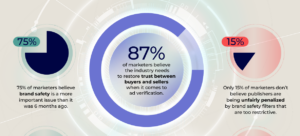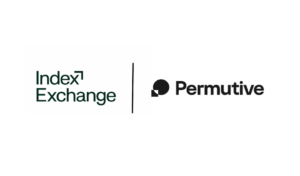Following this week’s momentous news from Google, our adtech columnist Rob Webster take and indepth look at what the news means for advertisers, publishers and the entire adtech industry.
We are in the final stretch, from having dominated digital marketing for over two decades Google will finally kill of the third-party cookie (3PC) in early 2022 on Chrome. Given that third-party cookies are next to useless on Safari and Firefox that means finally digital marketing will be in a post-3PC era.
Whilst the announcement on Wednesday was a surprise to some it really shouldn’t have surprised anyone – this has been coming for some time. Some believed Google would delay the change because of the pandemic or because the industry is not prepared (it isn’t) or had sufficient time to consider how to integrate with FLOC, Google’s targeting replacement (it hasn’t).
Google though seems to be above such considerations as to the sustainability of publishers and adtech providers or a fair and level playing field. Whatever else you read I promise you digital marketing will never be the same again. Yet despite the fact that this will cause much pain and during a tough time it will in the end be a force for good. Instead, it is a shame Google has not given sufficient information and time to the industry to prepare. Now we all must adapt to the new post-cookie world.
But move on to what. As ever there is a smattering of facts, things that we know to be true stated explicitly in Google’s document. Around that there is a lot of opinion. Generally, as seems to be the norm in these times, opinion is divided into two camps. The first camp believes that IDs for targeting and measurement will live on in independent adtech and via server-to-server integrations. The second, of which I am definitely a member, believes that Google hasn’t gone to all this trouble to hamstring itself and allow others a competitive advantage and so believe we must look forward to a marketing world based on groups (Cohorts) not IDs . Let’s try and separate out fact from opinion first and then gaze into our crystal ball.
• Google will not use IDs on its products, notably Google Ads or DV 360 (stated explicitly).
• Google will not for long allow independent adtech to use new IDs for targeting and measurement on its browser Chrome (opinions divided).
• Publishers can pass first-party data via Google’s technology (explicitly stated) allowing logged-in users to be targeted as individuals but not general browsers (opinions divided)
• Retargeting will go from being the main display tactic in the 2010s to a minority tactic from next year (opinions divided)
• Measurement will never be the same again (mostly agreed) and in future be done by a privacy-first Google Chrome API similar to Apple’s SK ad network (mostly agreed).
• Advertisers will need to re plan how independent measurement works (mostly agreed).
• Third-party data will be hugely impacted (mostly agreed) and may never again be used at an individual level – instead moving to a privacy-centric cohort approach (opinions divided).
• The above will cause huge disruption in adtech and data (mostly agreed) and mean that many companies that cannot adapt will not be able to survive (opinions divided).
• Large publishers will have a period of disruption but generally able to make the same revenues if not higher than before (widely agreed). Long tail publishers will suffer a dramatic and lasting drop in revenue (opinions divided).
• Advertisers will be able to operate in walled gardens with limited disruption (measurement and less retargeting), CTV and video will have less targeting options but be of limited impact, Display and retargeting will need to be rethought.
Let’s consider the key statement from Wednesday’s announcement.
“today, we’re making explicit that once third-party cookies are phased out, we will not build alternate identifiers to track individuals as they browse across the web, nor will we use them in our products.”
This is very clear. Google will not be using IDs in its targeting products. So that means Google ads (Search, Display, YouTube) and DV 360 will not be using IDs for targeting instead relying on FLOC and a cohort approach (more on that later). So here we will have a fact, you will not be able to use any of the new IDs directly on these Google products (there may be an indirect way, see below on PMPs).
What is less clear is if other SSPs and DSPs can use these new IDs on Chrome in similar volumes to 3pcs today. Ie can independent adtech operate in 2022 much as before just using a new ID instead of a cookie?
At this time Google have not been clear on this so we are entering the realm of opinion. I have already seen the opinion of many companies that are building for this understandably state that they will. My own opinion though is that this will not be allowed for any period of time. I just do not believe Google will allow other companies to target on their browser in a way which they are unable to do.
Further I do not believe Google would have gone to the trouble of developing FLOC if it was simply going to allow the independent adtech companies to carry on. Google is explicit in its announcement that it believes that alternative identifiers will not be acceptable in the new privacy landscape and also calls out fingerprinting as a practice it does not accept. Getting clarity on the extent to which Google will enforce this belief on its browser or alternatively turn a blind eye from independent adtech to a practice they do not support is one of the key areas of clarity we still need to get to accurately foresee the future.
Either way, it has long been my opinion that the advertising industry needs to move beyond individual identifiers and move to a world based on groups (or cohorts in Google’s language). As such I have to say I disagree with many of the digital marketing leaders who are effectively stating the ID show goes on, just without a huge competitor (Google).
A PMP solution?
Some tech vendors have singled out PMP deals as a way to run targeted advertising to an individual on Chrome using first-party data. Technically this is certainly possible as there is little Google with the browser could do to stop it as the data is matched server to server. Furthermore, for logged in users there is adequate opportunity for consumers to give consent to such activity (as they effectively do whenever they log into Google, Facebook, a CTV publisher or other walled garden).
This authenticated view of targeting will then in my view be both technically possible and compliant with legislation. It will allow large publishers with logged in users to still be able to offer individual level targeting and clean room companies that offer a service here to join up the data should prosper. This is indeed a great solution for large publishers with large groups of logged-in users. What it is not (in my opinion) is a solution for long tail publishers and indeed for retargeting (or individual level third-party data buying) outside of logged-in environments. The implications here are huge and will impact the viability of many businesses in identity, adtech and publishers (particularly long tail).
For publishers we can expect a short to mid-term hit for all publishers. Large publishers though with logged-in users and the ability to do PMP deals at scale yields should return to current levels and might perhaps herald higher yields. It could have the knock-on impact of pushing up yields on Safari as techniques evolve. For longer tail publishers the news is much worse as advertising yields plummet (without retargeting and third-party data buying) and they lack the ability to utilise first-party data and PMP-style techniques.
For advertisers the implications are in three main areas. 1) Measurement, 2 Targeting and planning techniques and 3 Adtech and Marketing Tech
1. Measurement
The exact details here are worthy of a separate article but these changes will herald a change in how measurement is carried out with current mostly cookie-based systems far less reliable. Post-click tracking will still be possible (with first-party cookies working on a client’s site) which means search will be largely unimpacted. Paid social will be impacted however Facebook and other walled gardens’ first-party scale will protect it. Display will have to adapt most to a very different measurement environment with a privacy-first API-led system from Google replacing traditional post-impression 3pc tracking. Affiliates will need to rely on a post-click model (as is mostly the chase anyway today).
2. Targeting and planning
Advertisers are going to need to adapt to the loss of most of their retargeting and put spend elsewhere. Retargeting anyway is an overused tactic and the end of its dominance alongside the ubiquitous cookie bomb technique (targeting many users once on low quality often unviewable inventory to drop a cookie on them and attempt to claim any sales) will be a boon for proper planning.
Third-party cookie-based data will be decimated with data marketplaces needing to update their practices to survive (a conversation for another article). Yet for advertisers’ new offerings will avail themselves with a raft of innovative targeting techniques emerging that don’t rely on cookies. Google’s FLOC targeting relies on groups of users (cohorts) with tight privacy controls and these techniques alongside new data options that mimic cohorts as well as improved probabilistic contextual and geo location services are the future for data companies and marketplaces.
3. Adtech and Marketing Tech
Advertisers are going to need to consider their tech stacks and how they operate in the new world. This impacts not only measurement but anything that uses a third-party cookie. Advertisers will need to beef up their first-party data collection and server to server setups to thrive. Many existing vendors will be of limited use in the new world and so a period of consolidation and re-imagining is required.
And what of FLOC Google’s federated learning of cohorts? This is both an exciting opportunity for the industry to rediscover itself around a new paradigm, that of the group (cohort) not the individual. It is also an example of Google’s power to force through change while providing limited information to the industry (first tests are only happening later this year!).
Cohorts though are the future for targeting at least and it will be amazing to see which data companies are able to first adapt to a new world and make their data available, either directly through FLOC or with a similar methodology. Interesting too which independent adtech companies are first able to make meaningful use of FLOC and combine it with their own innovations and access to the wider non-Google ecosystem.
For in all this we must remember that Google is merely one (rather large) part of a wider ecosystem. This ecosystem now looks to be going through a period of fragmentation with advertisers and tech companies needing different techniques for different browsers and environments (apps, CTV).
Yet this fragmentation is surely short lived, the direction of travel is set. Google, certainly clumsily, perhaps unfairly is pushing us towards a better future where data is both protected and respected. A world where advertising will thrive. Independent publishers and technology are going to have (another) tough time though they too can emerge stronger for it.
Exciting times.












